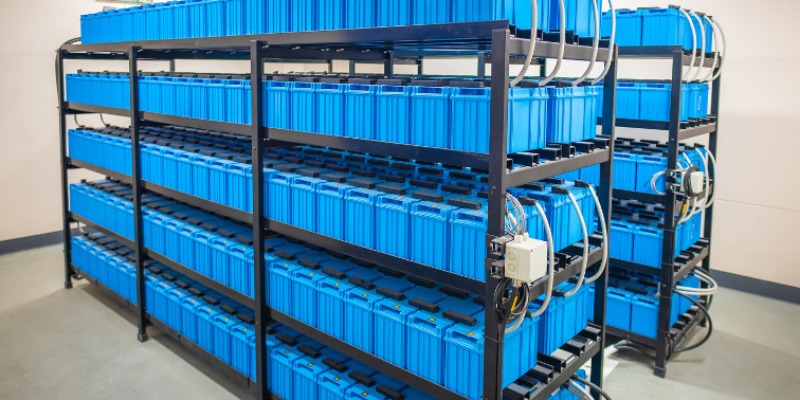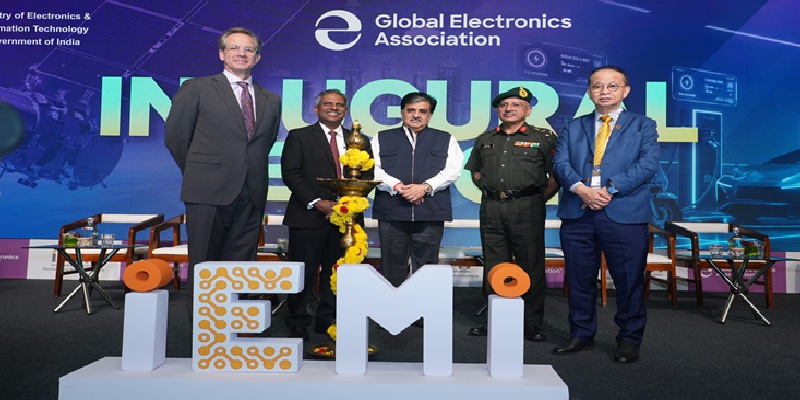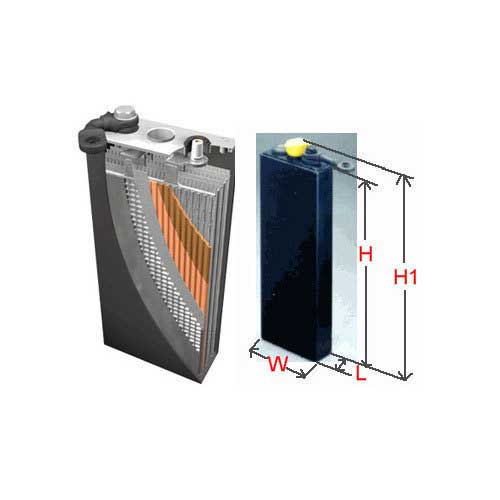Schedule a Call Back
IESA lauds new PLI Scheme allocating Rs 18, 100 cr for Advanced Chemistry Cell
 Industry News
Industry News- Nov 26,20

India Energy Storage Alliance (IESA), India’s leading
alliance on energy storage & e-mobility welcomes the Union Cabinet’s
approval on to introduce the Production-Linked Incentive (PLI) Scheme in the
following 10 key sectors for Enhancing India’s Manufacturing Capabilities and
Enhancing Exports – Atmanirbhar Bharat.
The 10 key sectors have received a total financial outlay of
Rs 1,45,980 crore over a period of five years, of which, Advanced Chemistry
Cell (ACC) battery has been approved a financial outlay of Rs 18,100 crore.
Automobiles and auto components have been approved Rs 57,042 crore.
NITI Aayog and Department of Heavy Industries will be the
implementing agency for this scheme. ACC battery manufacturing represents one
of the largest economic opportunities of the twenty-first century for several
global growth sectors, such as consumer electronics, electric vehicles, and
renewable energy. The PLI scheme for ACC battery will incentivize large
domestic and international players in establishing a competitive ACC battery
set-up in the country.
Welcoming the cabinet decision, Dr Rahul Walawalkar,
President, India Energy Storage Alliance (IESA) says, “This is an extraordinary
move by the government and is a result of 4+ years of industry push led by IESA
and other stakeholders. This national program holds immense importance as it is
going to accelerate the Atma Nirbhar Abhiyan in domestic manufacturing, helping
India to enter the global value chain for advanced energy storage technologies.
We are thankful to Amitabh Kant and NITI Aayog team for their leadership along
with contributions from the Department of Science and Technology (DST), Department
of Heavy Industries (DHI), Ministry of New & Renewable Energy (MNRE), and
the Ministry of Electronics and Information Technology (MeitY) in shaping this
program.â€Â
IESA has been actively working in this space for the past
three years, collating information from industry players (IESA member
companies) and submitting inputs on the discussion for Advanced Battery
Manufacturing in India.
“Since May 2019, IESA has been in constant communication
with the NITI Aayog and other ministries/departments on the launch of the
mission,†IESA said in its official statement.
In July this year, IESA wrote a letter to the PMO requesting
to expedite the launch of the Advanced Chemistry Cell – Gigafactory
Manufacturing Plan. In September this year, with the view to further accelerate
their efforts, IESA banded with industry associations like Indian Electrical
& Electronics Manufacturers’ Association (IEEMA), India Smart Grid Forum
(ISGF), ELCINA, and Maharaja Agrasen Institute of Technology (MAIT) and
submitted inputs urging the ministry to take the necessary steps for promoting
Advanced Battery Manufacturing in India.
IESA wrote multiple letters to the ministry explaining the
urgency of the Mission and the need to avoid delays which could lead to India
missing out on investment opportunities to other countries.
Moving forward, Dr Walawalkar suggests there is a need for
the government to pick some measures for kick-starting deployments of energy
storage technologies in a systematic manner that will help investors to commit
billions of dollars required for building Giga factories and the rest of the
supply chain. This does not necessarily require the government to subsidise the
demand, but to identify applications where these technologies are economical
and government agencies can save money by adopting the ACC technologies
(similar to how the LED rollout was planned through EESL).
Making SECI a case in point, Dr Walawalkar proposed as SECI
has already identified a series of projects and business models for deployment
of large-scale renewable hybrid projects, the government can also focus on
utilizing energy storage for reducing diesel consumption to help with air
quality and pollution reduction.
Related Stories

IEMI 2026 Concludes with Strong Industry and Defence Outcomes
IEMI 2026 concluded in Bengaluru with over 1,800 delegates, key MoU signings, industry reports, and global participation reinforcing India’s electronics manufacturing ambitions.
Read more
Indian manufacturing sector: Negotiating its way in a less VUCA world
India’s manufacturing sector is evolving through policy support, technology adoption and sectoral growth, though challenges in R&D and skilling remain, writes Prof R Jayaraman, Head, Capstone Proj..
Read more
Manufacturing Strength Behind India’s Self-reliance and Global Positioning
India’s manufacturing sector is evolving from domestic self-reliance to global leadership, navigating a VUCA environment through strategic policy, capability building and infrastructure-led execut..
Read moreRelated Products

Forklift Battery
Aatous International is a manufacturer and solution provider of a wide range of forklift battery.

Kusam Meco -Wrist Type High Voltage Alarm
‘KUSAM-MECO’ has introduced a new wrist Type High Voltage Alarm Detector - Model KM-HVW-289 having a wide sensing range from 1kV-220 kV AC.
Servotech Power Systems files 2 patents for energy management technologies
Servotech Power Systems, a leading manufacturer of EV chargers and solar solutions, has announced that it has filed two patents for innovative energy management technologies in order to facilitate gri Read more














